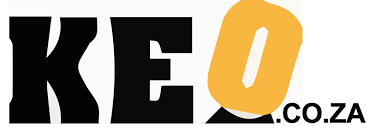Trumping the trolls with the block button
Mark Keohane, writing in “Keo’s Corner” for IOL
‘Toxic, embarrassing, disgraceful, appalling. Just some of the feedback, I’ve had. Thanks for using the @sign, so it’s all hit home. Now imagine getting inundated with abuse for doing your job. In my car crying. Hope you’re happy,’ tweeted BBC Rugby reporter Sonja McLaughlan.
Her crime was to ask the England captain Owen Farrell a few testing questions after the defeat to Wales.
McLaughlan did her job particularly well. She didn’t pay lip service to the concept of post-match interviews, which mostly offer nothing, either in the question or in the answer.
And any good interview is based on what questions get asked.
McLaughlan was unrelenting in her line of questioning. When Farrell refused to speak about the referee because it was after the fact and the referee was uncontrollable, she asked him to speak about the lack of discipline among his players, which she pointed out was controllable.
When Farrell offered indifference that any discipline issue was a team collective, she accurately said it wasn’t because there was one primary offender. And she named him.
Shock and horror, an interviewer asking what most who watched would have wanted to ask.
Clearly, much of England’s rugby support on social media took it personally. They took it as an attack on their defeated captain, an insult to their defeated team and, mostly, they interpreted her line of questioning as an act of emasculation.
And, so the pitch forks came out, the village idiots combined an I and a Q to form what they believed was an IQ and off they went, armed with the shield of anonymity, the bravado of a keyboard bully and the confidence that comes with any action having no consequence.
McLaughlan, unintentionally, further fed the mob when she interacted with them and gave them the victory they wanted: that of a battered emotional being.
The trolls danced a victory and their defence was to insist she needed to ‘harden the f@#k up’.
Distasteful, I know. Despicable, I know. Soul destroying, absolutely.
But even more damning than the language was the belief that McLaughlan had no right to be asking the England captain a question because rugby was a ‘man’s game’. And her tearful meltdown afterwards was confirmation to them that she was ill-equipped to work in this perceived ‘man’s world’.
Clearly, these imbeciles never watched the last women’s Rugby World Cup final between England and New Zealand. Their range of viewing would also not have extended to the magnificent Commonwealth Games women’s rugby 7s final between New Zealand and Australia. The skill, the intensity and the all-round quality made both matches riveting to watch.
It was rugby being played at its finest. It was as good as anything produced by men.
Rugby, as a sport, is played by people.
McLaughlan, the sports interviewer, is a person. Farrell, the player, is a person.
McLaughlan had every right to ask the questions she did and Farrell had every right to answer in the way he did.
It got personal on social media afterwards because McLaughlan was a woman interviewer. It should never have, but it did and it will continue to do so because of the prejudice and ignorance that dominates social media platforms.
The trolls will also continue to thrive because of a lack of accountability and the biggest tech giants, like Twitter and Facebook, not insisting on verified handles.
The keyboard mobs are uncontrollable and the only controllable is the block button function.
If the @ sign includes you and abuses you, block the creator and, to McLaughlan, own your own social media timeline like you did your interview with Farrell.
